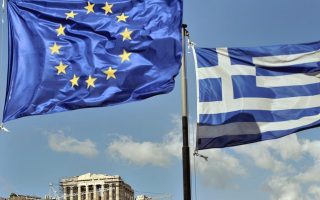From Letta to Draghi

In Europe, we all needed what Mario Draghi offered us last week. In the 400 pages of his report on the future of European competitiveness, he first reminded us of the values on which it was founded and for which the European Union deserves to exist. He presented to us its condition and position in the world, with the courage and energy of thought of one who has served the bloc from its highest positions. He enlisted rationality to articulate and support some radical propositions that enable us to respond to contemporary challenges. And, a few days after his 77th birthday, with the optimism of solid knowledge, in times darkened by fear and superstition, he assured us that we can do it. We just have to do what we must.
Gone are the days when Europe rested its prosperity on the US nuclear umbrella, Russia’s cheap natural gas and China’s expansionary economic policy
I single out his reference to the values of Europe: “Europe’s fundamental values are prosperity, equity, freedom, peace and democracy in a sustainable environment. The EU exists to ensure that Europeans can always benefit from these fundamental rights. If Europe can no longer provide them to its people – or has to trade off one against the other – it will have lost its reason for being. The only way to meet this challenge is to grow and become more productive, preserving our values of equity and social inclusion. And the only way to become more productive is for Europe to radically change.”
Europe is losing productivity. In 1995 it had an estimated 95% of US productivity, today it has only 80%. It is losing wealth – over the past 25 years per capita income in the US has grown at twice the rate of Europe. It is also losing out in tech: Only four of the top 50 tech companies are European. Gone are the days when Europe rested its prosperity on the US nuclear umbrella, Russia’s cheap natural gas and China’s expansionary economic policy. For Europe to continue to prosper (perhaps to maintain its own cohesion) it will need to stand firmly in the new competitive international environment, which has more insecurity, less international law, more national protectionism.
This report is the second one that charts new paths for Europe. It was preceded by a report of another great Italian, also a former prime minister, Enrico Letta, in April. Will the two reports be taken seriously?
Political instability in Paris and Berlin doesn’t help. But let’s be optimistic. After all, the European Union grows stronger through its crises. History also teaches us that, before all the EU’s greater moments, there was a report that highlighted the need for the changes that followed, as Hellenic Foundation for European & Foreign Policy (ELIAMEP) Senior Policy Adviser Alekos Kritikos reminded us. The establishment of the European Economic Community was preceded by the Spaak Committee’s 1956 Spaak Report. The creation of the EU’s internal market was preceded by Lord Francis Arthur Cockfield’s 1985 White Paper. The recommendations of Tommaso Padoa-Schioppa, member of the Executive Board of the European Central Bank, and the 1989 Delors Report, were the forerunners of Economic and Monetary Union and the introduction of the euro in 1999.





